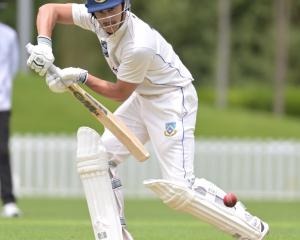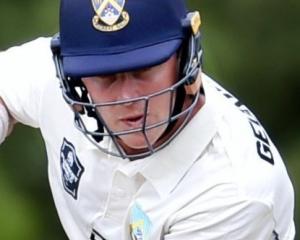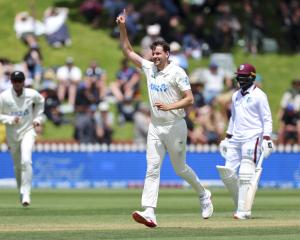There's an air of confidence on the eve of Otago's State series cricket campaign, and justifiably.
Otago is fresh from winning the State Shield one-day competition last summer, its first trophy for 20 years, and it has suffered minimal personnel losses.
Bradley Scott's transfer is a big blow - he is a wholehearted cricketer and a superb team man - but his loss should be offset by the acquisition of Neil Wagner, Ian Butler and, in the one-dayers, Dimitri Mascarenhas.
Otago starts its State Championship four-day campaign on Monday and there were probably about 20 genuine contenders for the squad.
It's been a long time since Otago has had such depth. There are many things right about Otago cricket at present.
It's almost as if moving the headquarters to the University Oval from Carisbrook - where the team often played and members were sometimes treated like second-raters - has ushered in a new era.
There are many young, homegrown players coming through the ranks, which suggests those in charge of the game are doing their job well.
The chief executive, Ross Dykes, might be a transplanted Aucklander, but he has an absolute passion for cricket and vast knowledge of players through his lengthy stints on the New Zealand selection panel.
Mike Hesson has the confidence and support of his players and he is steadily working his way up the pecking order as a coach and he has built on the foundations put in place by his predecessor, Glenn Turner.
Then there is the cricket manager, Mark Bracewell, who is quietly but effectively working away in the background and who achieved wonders in lifting the standard of cricket at Kavanagh College.
There have been times in previous seasons when Otago has drifted through campaigns with little expectation of success, and when its performances reflected that.
It's no longer the case.
Given the poor seasons of Otago and the Highlanders in rugby, the precarious future of the Nuggets and the disbanding of the Rebels, the cricketers are now flag-bearers for Otago sport.
Craig Cumming is the most influential captain since Warren Lees and he has a mixture of well-recruited imports and capable homegrown players at his disposal.
Imported players are an integral part of the professional era.
When Otago won the Shell Trophy in 1977, Lance Cairns was the only player not born and bred in the region and, when it won the double in 1988, English professional Neil Mallender, who gave yeoman service to Otago, was the only player from north of Dunedin.
Now, Otago attracts players from throughout New Zealand but, crucially, it continues to develop its own from within the region.
Young players are coming through the Otago system and there is intense competition.
It is different from Otago rugby, which, for reasons no-one has been able to put a finger on, is not developing as many quality young players as it would like.
Ben Smith is the only homegrown player in next year's Highlanders squad.
Even Southland contributes five players born and bred in the province.
Otago will be in the rare situation of starting the State Shield one-day competition as favourite and that is justified, given the resounding success of last summer.
But it will be in the four-day State Championship that it will want to lift its ranking from fourth last season.
Its batsmen scored a heap of runs and Otago, with two outright wins and six draws, was the only unbeaten team, but draws are of little use on the points table.
Lees, who led Otago to six titles in 12 years, was something of a gambler as a captain.
His philosophy was that four wins and four losses was more likely to win a title than two wins and six draws.
He was prepared to lose in trying to win and that was reflected in his tactics, field placings, declarations and run-chases.
The present Otago team is at least the equal in ability of the better sides of the Lees era and, with a little tweaking here and there - a little more gambling on instinct - it could become a worthy contender for the double.












